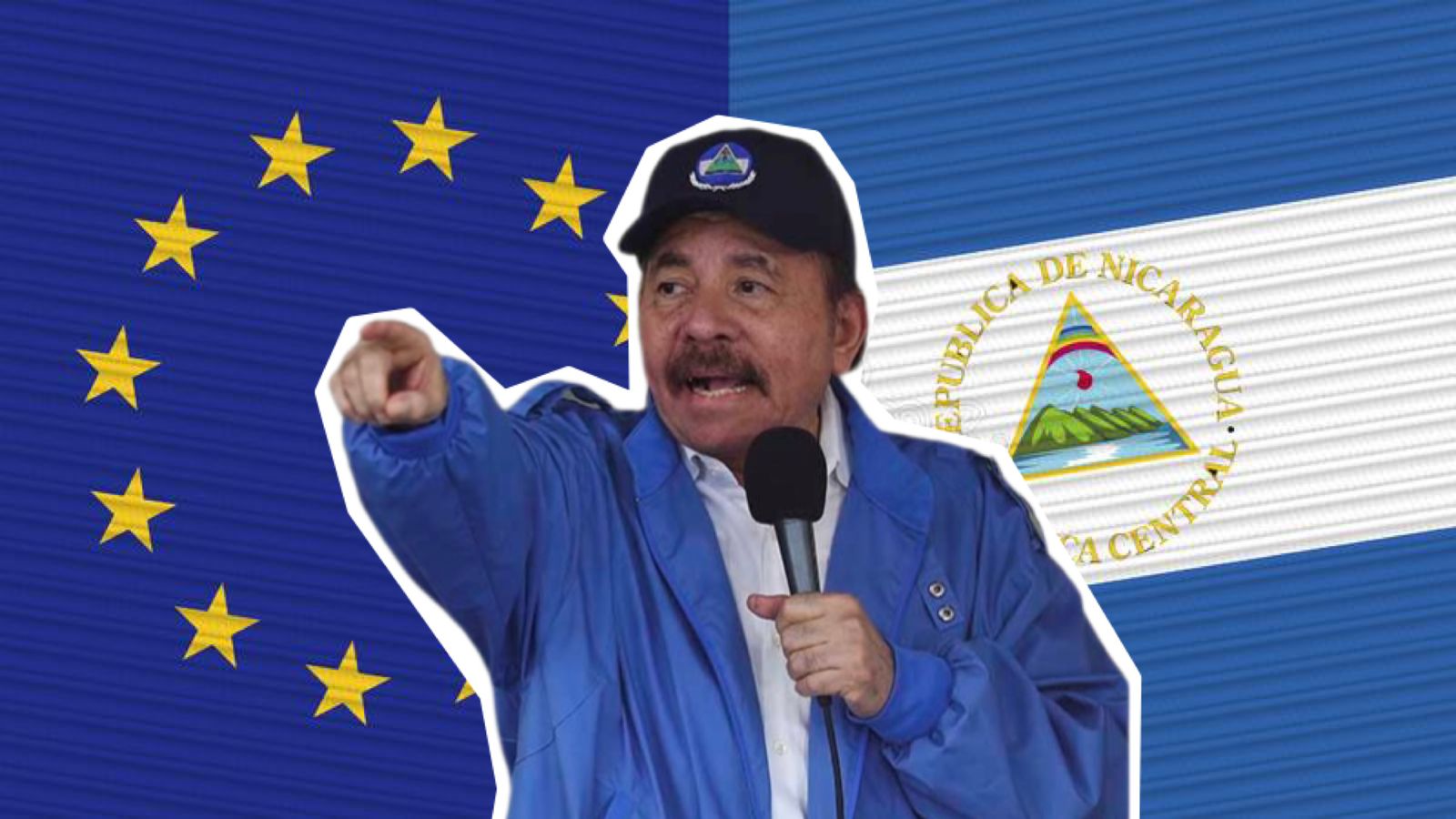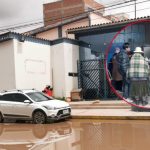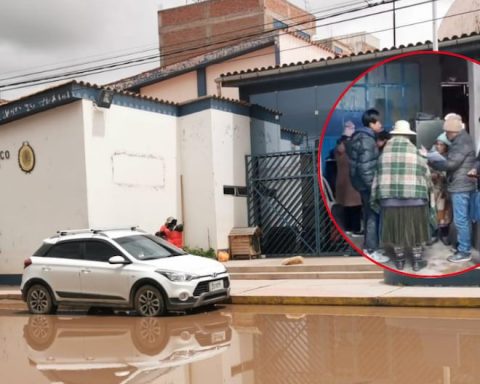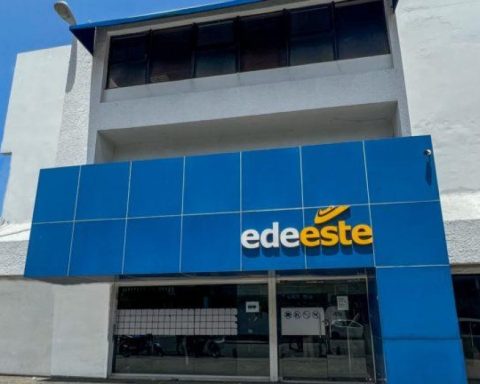The most recent diplomatic outburst by the dictatorship of Daniel Ortega and Rosario Murillo, by expelling Bettina Muscheidt, ambassador of the European Union in Nicaragua, puts the cooperation of the old continent and exports to the block of countries at risk.
The European ambassador Bettina Muscheidt arrived in Nicaragua in September 2021, just a year ago, replacing Pelayo Castro.
In Nicaragua, the European Union executes five programs: Support for Technical Education and Vocational Training, Support for Fiscal Management, Support for Sustainable Local Economic Development of the Caribbean Coast through the tourism sector, Prevention and Control of Organized Crime and the Drug Trafficking and the Comprehensive Sectoral Program for Water and Human Sanitation in Nicaragua.
Related news: “Total disrespect”, this is how opponents assume the expulsion of the EU ambassador in Nicaragua
These programs and projects aim to reduce poverty through the promotion of a more productive inclusive development model, focused on taking advantage of the demographic bonus. According to statistics from the Central Bank of Nicaragua (BCN), in 2012 exports to the EU totaled 258.9 million dollars and from 2007 to August 2022 shipments have been made in the order of 3,274.3 million dollars, according to a count by La Prensa .
Relations between the EU and Nicaragua have increasingly been framed within a perspective of Central American integration. Nicaragua is part of important regional agreements between the EU&CA: the Cooperation Framework Agreement for Central America (1985), the Second Cooperation Framework Agreement (1993), the Political Dialogue and Cooperation Agreement (2003) and the Association Agreement between the EU and Central America (2012).
The EU has bet in favor of Nicaraguaworking for the consolidation of a sustainable development model based on peace, democracy, the consolidation of the Rule of Law and the deepening of regional integration at the political level.
Cooperation for Nicaragua
From 2007 to 2013, within the framework of the Cooperation Strategy of the European Union with Nicaragua, a total amount of 195 million euros was invested. The cooperation focused on priority sectors such as the improvement of democracy and good governance, education, and the creation of a favorable climate for business and investment in the country.
In 2014, the implementation of five new cooperation programs was announced, through which topics such as education for employment, security, tourism, fiscal management and water supply were supported.
That same year, an amount of 204 million euros was announced for the new EU cooperation strategy with Nicaragua for the period 2014-2020, which focused on three sectors: support for the productive sector, particularly agriculture, effective education for employment and adaptation to climate change.
For 2019-2021, the EU allocated €44.1 million in humanitarian aid in Central America. From the recurrent droughts in the Dry Corridor of Central America, the dengue epidemic in Guatemala, Honduras and Nicaragua, to COVID-19, the tropical storm Amanda in Guatemala and El Salvador, as well as the hurricanes Eta and Iota in Guatemala, Honduras and Nicaragua.
They protected their cooperation funds in the Nicaraguan crisis

In 2018, the EU introduced additional safeguards for its cooperation funds in Nicaragua, mainly in terms of increased surveillance and monitoring to avoid supporting the government in its repressive measures. In that year began the social, political, economic and human rights crisis that the country has faced. The dictatorial couple ordered the police and paramilitary forces to suffocate with bullets the social protests unleashed by a failed reform of the pension system. A total of 355 people were killed, according to a count by the Inter-American Commission on Human Rights (IACHR).
The European Union supports the productive sector with the aim of promoting rural development, increasing sustainable production, competitiveness and resilience to climate change of micro, small and medium-sized enterprises (MSMEs) in the agricultural and agro-industrial sectors. It also promotes effective employment education to improve the employability of the workforce, particularly high school graduates. The improvement of the relevance of education, equitable access and quality of secondary education, as well as technical/vocational education in general, are contemplated.
In addition, it executes projects on the subject of adaptation to climate change to increase the adaptation of the population, in particular through integrated management of water resources and alleviating pressure on forests.
The donation of vaccines against COVID-19
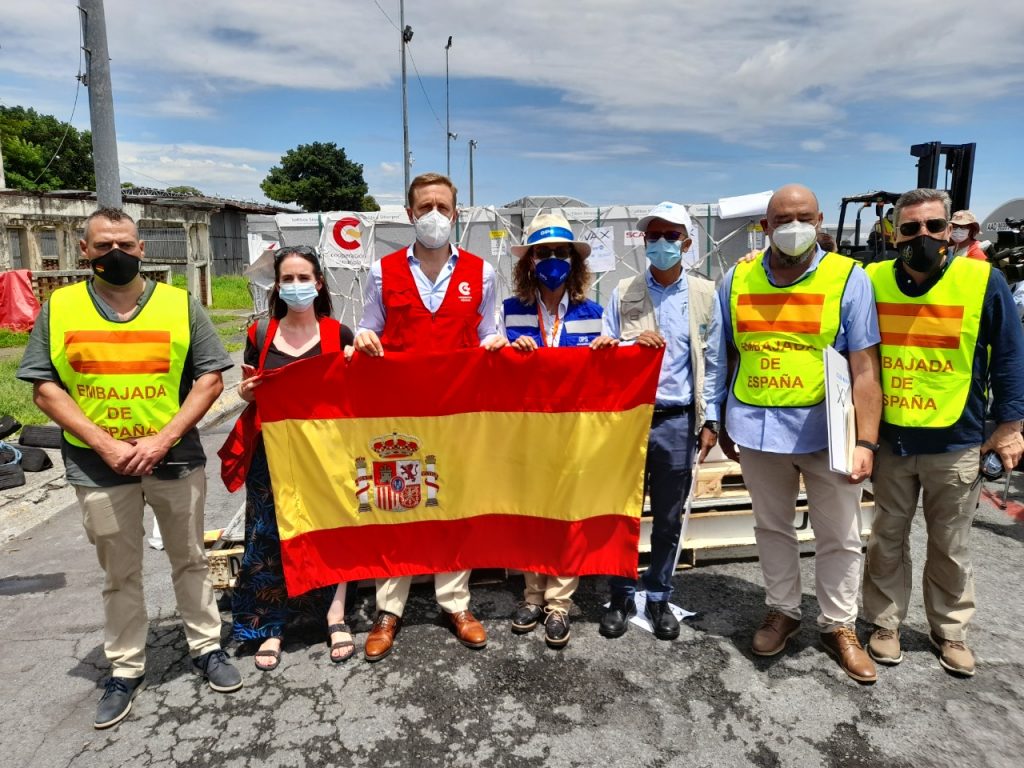
The EU and its Member States have contributed 2.2 billion euros to ensure that 92 low- and middle-income countries, including Nicaragua, have access to effective vaccines against COVID-19. In the case of Nicaragua, the COVAX initiative has allowed the donation of more than 3.2 million doses of vaccines, as of November 2021, distributed by the Pan American Health Organization (PAHO), most of them from the bloc’s countries. Spain, a member of the European Union, is the country that has led the donations to the Nicaraguan Ministry of Health (Minsa).
The European Union (EU) reported yesterday, September 29, that they have not received any official communication from the regime of Daniel Ortega and Rosario Murillo about the expulsion of their ambassador to Nicaragua, Bettina Muscheidt. She stressed that they “evaluate” the situation of the diplomat.
“I am not aware of any official announcement. The only thing I can say on the subject at this time is that our ambassador, the head of the EU delegation in Managua, was summoned yesterday (September 28) to the Nicaraguan Ministry of Foreign Affairs,” revealed Peter Stano, spokesman for the High Representative of the EU for Foreign Affairs, Josep Borrell.
In that quote, he details the medium divergent, the diplomat was informed of her de facto expulsion and the “reasonable” term to leave the country on October 1, that is, that for next Saturday the dictatorship would be imposing 72 hours to leave Nicaragua. “We are evaluating his situation in contact with the Nicaraguan authorities,” Stano said.
During his predecessor’s mission, the EU and some European countries sanctioned 21 officials, relatives and associates of Ortega, including his wife, Vice President Rosario Murillo, and several of his children, under charges of violating human rights and democracy. These sanctions will expire on October 15 and the European Union is expected to renew them for a new period.
A dozen opposition organizations consider that the actions of the dictatorship against the diplomat are a “total disrespect” for its diplomatic mission and it is a sign that the Ortega and Murillo regime seeks to isolate Nicaragua from the international community, the EU being one of the main trading partners. They emphasize that in the last 25 years the bloc of countries has been one of the main sources of cooperation for the country’s development.
The demands of the European Union

MEPs have approved six resolutions condemning the serious human rights situation in Nicaragua. One of the pressure measures that they intend to exert against Ortega and Murillo is the revision of the clause of respect for human rights in the Association Agreement of the European Union with Central America.
The European Parliament approved on December 16 the resolution on the social and political crisis in Nicaraguawhich exposes 12 points to exert pressure against the regime of Daniel Ortega, and in which it highlights the lack of knowledge of the electoral day of November 7, and the beginning of an investigation, through the International Criminal Court, against the State of Nicaragua and its rulers, for crimes against humanity.
The resolution proposes to the High Representative of the European Union for Foreign Affairs, Josep Borrell, that he «use all the means at his disposal to increase individual sanctions, and denounce the democratic clause of the Association Agreement between Central America and the European Union», for which Nicaragua would be isolated from the EU.
In addition, it asks that all member states be able to supervise the European funds allocated through multilateral and financial institutions such as the Central American Bank for Economic Integration (CABEI), to guarantee that there is also no financing through this channel that could reinforce the regime. The European Parliament has also demanded the “immediate and unconditional” release of all political prisoners and the annulment of judicial proceedings.
